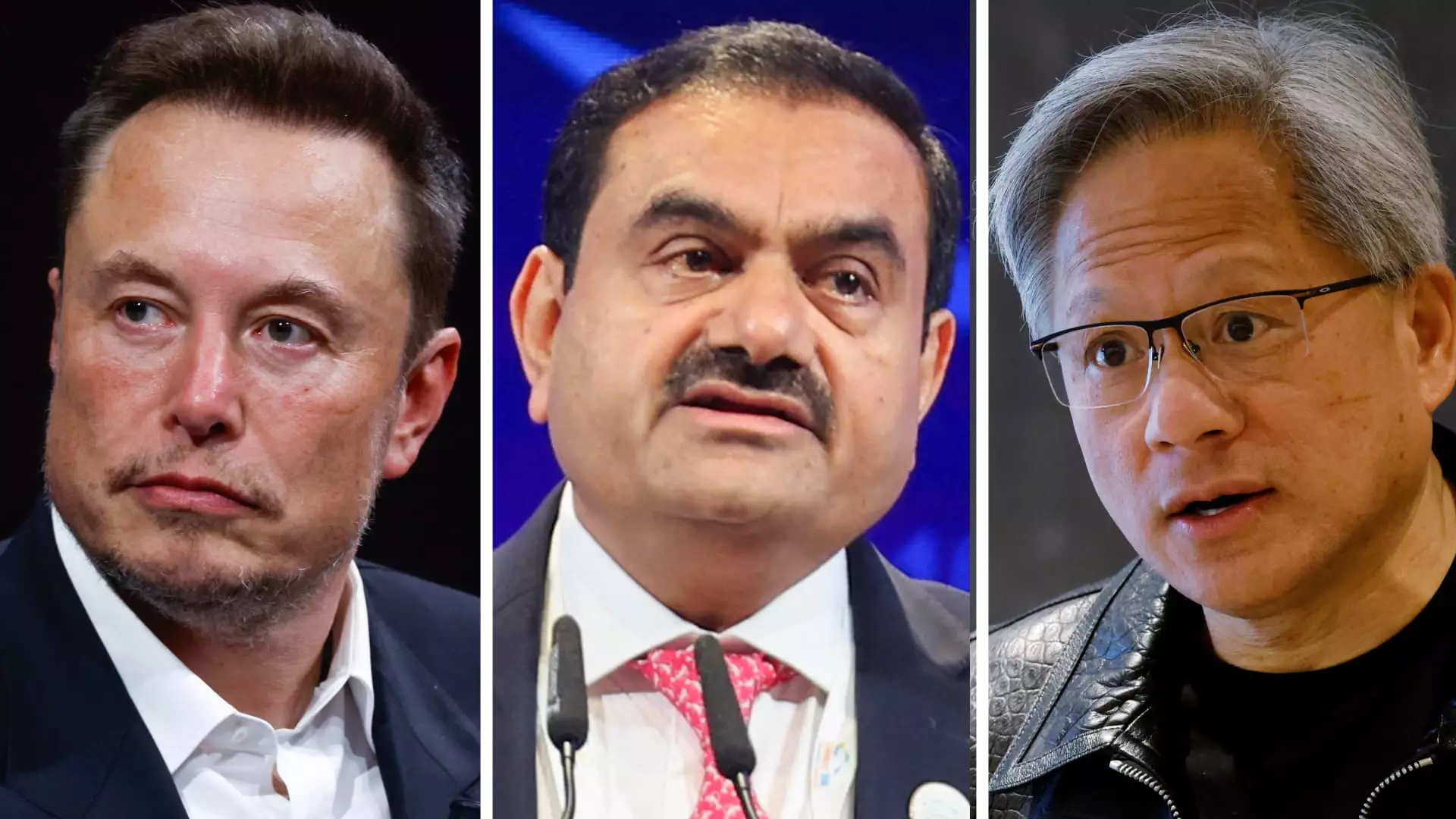The Rise of the Trillionaires: Who Will Set the New Wealth Record?

The concept of immense wealth has evolved significantly over the past century. The financial landscape was irrevocably altered on September 29, 1916, when John D. Rockefeller was recognized as the world’s first billionaire. His firm, Standard Oil, commanded an impressive market valuation, marking a pivotal moment in history that showcased the potential for individual wealth accumulation. Newspapers heralded Rockefeller’s unprecedented status, framing it as a monumental achievement. Fast forward more than 100 years, and we are now grappling with a new aspiration: the quest for the world’s first trillionaire. As wealth continues to be generated at breakneck speed in today’s economy, speculation over who will reach this milestone first captivates economists, investors, and the general public alike.
As we stand at the threshold of a new financial era, various individuals are eyeing the trillion-dollar mark, effectively becoming a topic of fervent discussion and debate. Recent forecasts from Informa Connect Academy place Tesla’s CEO, Elon Musk, in the lead, suggesting he could achieve this remarkable status by 2027—conditional on his wealth maintaining an astonishing annual growth rate of 110%. Currently valued at $251 billion, Musk’s trajectory is primarily driven by Tesla’s continued expansion and valuation surges in the tech market. His evolution from billionaire to prospective trillionaire encapsulates the volatile yet lucrative nature of technological entrepreneurship.
Following Musk, Indian industrialist Gautam Adani emerges as another frontrunner. The founder of the Adani Group, Adani’s projected annual growth rate of 123% suggests that he could reach trillionaire status by 2028. His business ventures have significantly impacted India’s economy, particularly in infrastructure and energy sectors. In this context, Adani underscores the growing global wealth distribution and the increasing prominence of non-Western billionaires in the wealth conversation.
Moreover, Jensen Huang, CEO of Nvidia, has experienced a staggering increase in wealth, skyrocketing from $3 billion to over $90 billion within five years. With projections estimating he could join the ranks of trillionaires as early as 2028, Huang’s case exemplifies the rapid advancements and wealth generation in the tech industry—a sector characterized by innovation and volatility.
As we venture deeper into the possibilities of trillionaire status, it begs the question: what would the emergence of a trillionaire mean for global economies? Wealth concentration has long been a critical issue, raising concerns about socio-economic disparities. The existence of trillionaires could further exacerbate wealth inequality or stimulate investment and philanthropy aimed at addressing societal challenges. Historically, many billionaires have engaged in philanthropic endeavors, providing resources to tackle pressing global issues such as climate change, education, and healthcare.
Conversely, there exists a credible argument that the concentration of such vast wealth poses systemic risks, including political manipulation and market volatility. While some billionaires utilize their resources altruistically, the unprecedented nature of trillionaire status could introduce new challenges that policymakers must address.
The Uncertain Path Ahead
Despite optimism surrounding potential trillionaires, predicting precise timelines remains fraught with uncertainty. Wealth generation is influenced by a myriad of factors, including market dynamics, regulatory changes, and even geopolitical shifts. For instance, the remarkable growth trajectories of firms like Tesla or Nvidia may not continue at the same pace due to potential market corrections or shifts in consumer behavior. Additionally, the technology landscape is marked by rapid change, posing risks to even the most promising entities.
As the century-old aspiration for wealth escalates to unprecedented heights, the race for the first trillionaire encapsulates broader economic narratives. The contenders—Musk, Adani, Huang, among others—represent not just personal fortunes but the very essence of tech-driven capitalism and its implications. The impending achievement of $1 trillion could redefine not only what it means to be wealthy but also how society perceives wealth itself. The world watches with bated breath as we inch closer to this significant milestone in our economic history.





